Sad After Having a Baby? 5 Practical Tips for New Parents
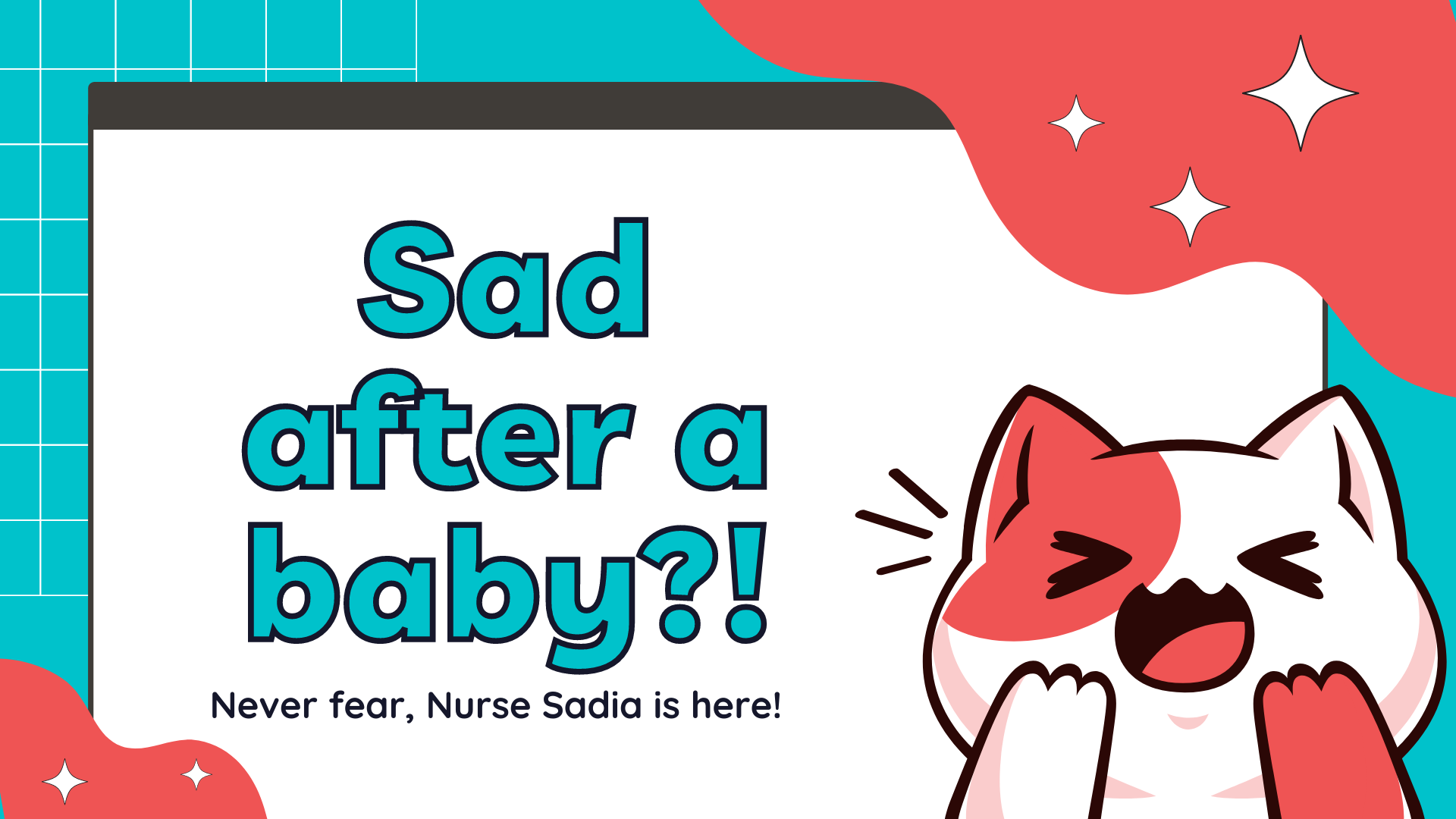
Hi! If you’re reading this, you might not be having the happiest Wednesday, but I’m here to make it better! If you’re feeling sad after having a baby, know that you are not alone. In honor of World Maternal Health Day (first Wednesday of every May) and Mental Health Awareness Month (every May), let’s talk about feeling sad after having a baby. Repeat after me.
Welcome to my blog! I’m Sadia, a women’s health nurse practitioner, women’s health content writer, and social commentator. I do many things, but mostly, I write and speak my mind. All views my own unless stated otherwise. Grab something to drink and scroll away with me. It’ll be good for both of us, promise.
You are not weird.
You are not a freak.
Breathe.
You are not a failure.
You are not a bad parent.
Breathe.
You are not disgusting.
You are doing your best and that’s all that matters, and I support you, OK.

Say this out loud if possible: many people feel sad after having a baby.
In addition, many people feel sad after having a baby.
One more time: your feelings are valid, even those involving feeling sad after having a baby.
In fact, it is a lot more common than society makes it out to be.
Being a new parent is complicated.
Confusing.
Sleep-depriving.
Exhausting.
And so much more.
Being sad after having a baby is something that many birthing parents struggle with, yet are afraid or ashamed of talking about with their relatives, friends, or health care providers.
Before I continue, I want to make a quick disclaimer. If you are having thoughts of hurting yourself or others, please contact your health care provider, local emergency services via 911 or whatever is available in your area, or reach out for immediate help.
**If you live in the United States, there is the SAMSHA National Helpline at SAMHSA’s National Helpline, 1-800-662-HELP (4357) (also known as the Treatment Referral Routing Service), or TTY: 1-800-487-4889 is a confidential, free, 24-hour-a-day, 365-day-a-year, information service, in English and Spanish, for individuals and family members facing mental and/or substance use disorders. This service provides referrals to local treatment facilities, support groups, and community-based organizations.**
Now that the disclaimer is out of the way, let’s talk about ways to understand feeling sad after having a baby. Also, whether you’re reading this for yourself or to help out someone else, get ready to take notes.
After birth, you might have a lot of different feelings, priorities, and things overall to deal with, so I’m going to jump right into my tools to help you postpartum!

5 Practical Tools for Those Feeling Sad After Having a Baby
- #1 Keep track of what’s going on. I’m serious. What’s going with you?
- No really, let it out. Take a deep breath and let’s go.
- You got this.
- First, get a piece of paper, the Notes app, your planner, whatever it is you have to express yourself. I want you to write down all the things you’re feeling. Write down all your feelings, your thoughts, any changes to your postpartum body.
- What about finances? Work? Life? Any changes there, too? I know that being broke or unemployed can definitely trigger feeling sad after having a baby.
- Any changes in relationships in your life? Let it all out. Express yourself. Take out everything that’s been bottled up for so long.
- Are there any particular situations or triggers that evoke feeling sad after having a baby more than others, such as doctors appointments or food?
- You need this, you deserve this release, you got this.
- Your goal is to continue to keep track of all things that could trigger feeling sad after having a baby however best for you.
- #2 Let’s talk about mental health for minute.
- Have you heard of baby blues, postpartum depression, or postpartum psychosis? I want you to read up on these health conditions on Mayo Clinic, WomensHealth.Gov, and Mental Health America.
- Millions of birthing parents experience severe hormonal shifts and physical changes after giving birth, and feeling sad after having a baby can be consider part of baby blues. But, what if you’re still feeling sad after having a baby a few months later? What if you’re not feeling “back to your old self” or “like how I used to be?”
- Also, I want you to think about all your feelings from above. Next, look at them, see if you’ve been feeling more happy, sad, or other emotions over the past few days, weeks, or months. And I want you to take a breath and let’s get you taken care of 🙂
- #3 Reach out to your health care provider.
- Whether or not you think you have postpartum depression, if you’re feeling sad after having a baby and still reading this, I know it’s something that’s been on your mind for a hot minute now. You know it, too. If you have access to health care services, I would HIGHLY recommend seeing them to discuss your mental health concerns.
- If for any reason you did not like your prenatal care provider or your current primary care provider, you can always get a second opinion from another provider. I would recommend reaching out to your insurance company to see who is covered in your area.
- If for any reason you find a provider and they don’t take your concerns seriously, you can always seek another opinion. Your feelings are valid, and they deserve to be treated as such.
- If you don’t have health care services, see if there are any low-income or un-insured health care facilities in your area via these free tools: Free Clinics and healthcare.gov.
- Your health care provider might recommend seeking therapy or starting you on medication.
- How do you feel about seeking therapy or starting medication for mental health concerns?
- Are you ready to be honest with a health care provider about your feelings?
- Whether or not you think you have postpartum depression, if you’re feeling sad after having a baby and still reading this, I know it’s something that’s been on your mind for a hot minute now. You know it, too. If you have access to health care services, I would HIGHLY recommend seeing them to discuss your mental health concerns.
- #4 Consider your surroundings.
- Let’s get into it. How do you feel about your living situation, work situation, finances, family, friends, co-workers, neighbors, partner, etc.?
- Truthfully, if they are not supportive in your life, it might be time to bring up their lack of support with them. Now is the time to focus on you and your health. Honestly, it’s always been time to focus on you since you are the #1 in your life, but better late than never, honey. You got this.
- Simply put, part of growing up is learning to set boundaries, managing your time, and learning more about what is best for you and your loved ones. If you feel that your surroundings and interpersonal dynamics are contributing to your feeling sad after having a baby, it might be time to discuss it. And if they don’t respect your mental health or boundaries, it might be time to let them go.
- This is going to be an extremely personal step, so be aware of all your feelings. Remember, so many things can affect your feeling sad after having a baby. It could be hormones, lack of sleep, or lack of support. Whatever it is, be ready to embrace the truth to change for the better!
- #5 Finally, find local support.
- Postpartum Support International is a great resource of groups and agencies in the United States and elsewhere, which can be super helpful for you.
- Some cities and states have localized initiatives for postpartum support and postpartum mental health, but not always. (Which is why people have turned to the Internet in mass numbers over the past three decades seeking information on feeling sad after having a baby).
- I know there are millions of online forums to discuss feeling sad after having a baby, and I am pro discussions on all the things. But, you need to ask yourself if any of these supports are truly helping you and making YOU feel better. If they are, great. If not, time to move onto something else.
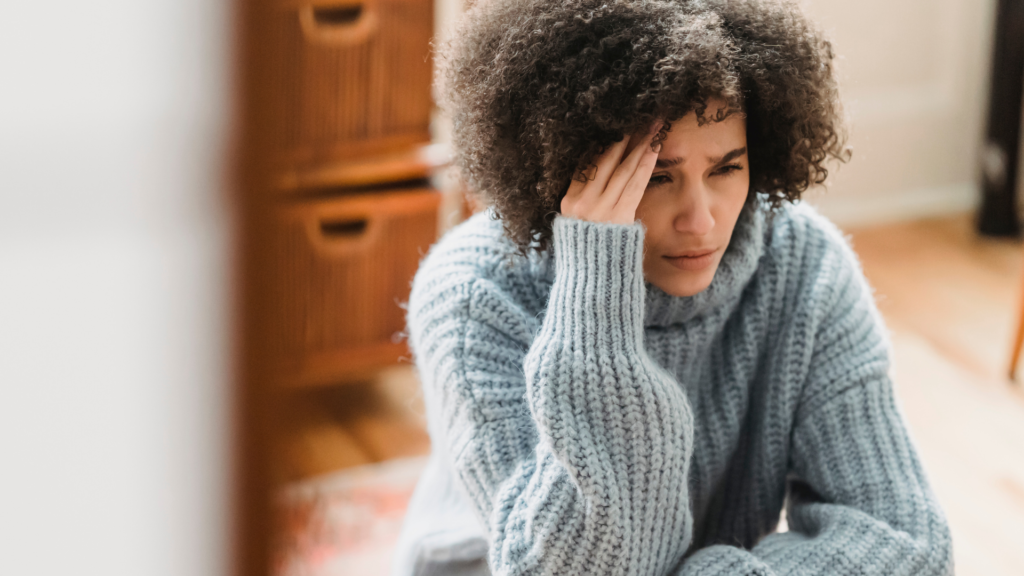
Alrighty, these are my concrete tips and tools for those who are feeling sad after having a baby. Whether you’ve given birth multiple times or this is your first rodeo, I hope this has helped you in some way! Do yourself a favor and share this post with someone.
Also, I know I’ve seen my fair share of people feeling sad after having a baby. It’s a lot more common than people realize, especially for people who are poor, in domestically abusive situations, who do not have stable income, who do not have a healthy support system, and more. I would definitely recommend being real about your feelings always since that’s going to get you through life a lot more than you realize.

Finally, As much as babies are cute and being a parent can be rewarding, it’s also extremely mentally and physically taxing on someone. Especially in America where the “bounce back” culture is so normalized that anyone who is sad after having a baby is shunned and called weak or worthless.
In addition, America has no paid maternity leave, paternity leave, or standardized postpartum care. America will probably never have any standardized national care to address postpartum mental health because being sad after having a baby is just too taboo for the government to care.
First, I care. Second, I want you to have your best life. Moreover, I support you.
Finally, let’s tackle your feelings and make your postpartum journey even better!
Overall, you got this!
Yours truly,
Nurse Sadia
References
https://www.mayoclinic.org/diseases-conditions/postpartum-depression/symptoms-causes/syc-20376617
https://www.samhsa.gov/find-help/national-helpline
Maratos Counseling. (2022). What is Postpartum Rage? Retrieved April 5, 2022 from https://maratoscounselling.com/postpartum-rage/
P.S. Are you still reading? If you are able to afford to do so, consider compensating me for my time and labor with a one-time amount via PayPal (https://paypal.me/nursesadia) or Ko-fi (https://ko-fi.com/nursesadia). Thank you!
DISCLAIMER: Nurse Sadia is a licensed and board-certified women’s health nurse practitioner and registered nurse. All information on this page and on www.digitalhealthcommunicator.com is for educational and informative purposes only. It is not meant to be used for self-diagnosing or self-treatment of any health-related conditions. While the information presented has used evidence-based research and guidelines for accuracy, Nurse Sadia cannot guarantee any inaccuracies as healthcare is rapidly evolving.
This information should not be used to substitute professional medical advice. Nurse Sadia is not responsible or liable for any damages, loss, injury, or any negative outcomes suffered as a result of personal reliance on the information contained on this website. Nurse Sadia also makes no guaranteed positive outcomes. Information is also subject to change as needed without notice. Please consult with your healthcare provider before making any healthcare decisions and ask about guidance for specific health conditions. Please do not disregard the advice of your healthcare provider or delay seeking care for health care conditions.

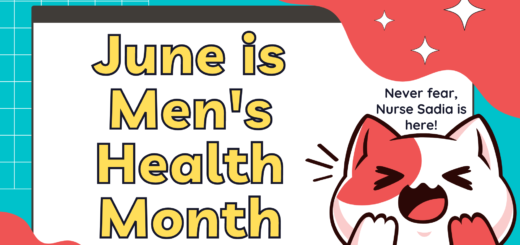
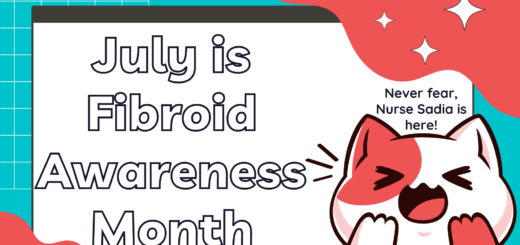
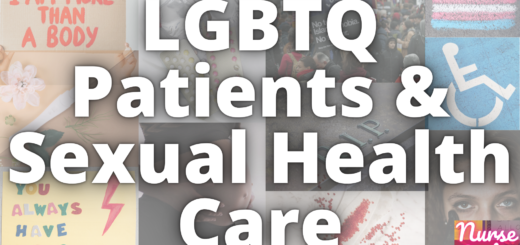

1 Response
[…] 0 […]